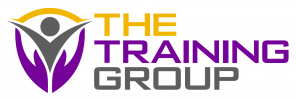Unit 1: Understanding roles, responsibilities and relationships in education and training
Learners will be taught how to analyse the application of pedagogical principles, use assessments, plan lessons and prepare for the classroom environment.
Understanding and using inclusive teaching and learning approaches in education and training
Planning to meet the needs of learners in education and training (Copy 1)
Assessing learners in education and training (Copy 1)
Using resources for education and training (Copy 1)
Unit 2: Teaching, Learning & Assessment In Education & Training (Copy 2) (Copy 1)
Learners will be taught about their responsibilities as educators, educational legislation, meeting the needs of the learners and how to teach in a student-centred manner.
Unit 3: Theories, Principles & Models In Education & Training (Copy 2) (Copy 1)
Learners will be taught ways in which theories, principles and models of learning can be applied to teaching, learning and assessment.
Unit 4: Wider Professional Practice & Development In Education & Training (Copy 2) (Copy 1)
Learners will be taught about the concepts of professionalism and dual professionalism in education and training and how they can apply this within the classroom.
Unit 15: Inclusive Practice (Copy 2) (Copy 1)
Learners will be taught how to review the impact of personal, social and cultural factors on learning and teaching.
Unit 17: Preparing for the mentoring role (Copy 2) (Copy 1)
Learners will be taught how to analyse the skills and qualities required for a the mentoring role teachers play in education.
Unit 25: Developing, using and organising resources in a specialist area (Copy 2) (Copy 1)
Learners will be taught how to analyse how theories, principles and models of inclusive curriculum design can be used to inform resource development in own specialist area.
No questions yet
Be the first to ask your question! You’ll be able to add details in the next step.
Ask a new question
Add an answer

Ethical and Professional standards
Ethical standards are the moral principles that guide a mentor’s behavior and decision-making process. Mentors should act with integrity and honesty, striving to provide the best possible guidance for their mentees. They should also maintain confidentiality, ensuring that sensitive information shared by the mentee is kept private. This trust-building aspect of the mentoring relationship encourages open communication and allows mentees to feel comfortable discussing their challenges and aspirations. Additionally, mentors should be aware of potential conflicts of interest and avoid situations that could compromise their objectivity or the mentee’s best interests.
Professional standards in mentoring refer to the guidelines and best practices that ensure the effectiveness of the mentoring relationship. Adherence to these standards promotes a positive and productive mentoring experience. Mentors should be knowledgeable about the subject matter and skills they are imparting, regularly updating their expertise and staying current with industry trends. They should also follow organizational policies, procedures, and any applicable legal or regulatory requirements. By adhering to these professional standards, mentors can provide high-quality guidance that fosters the mentee’s personal and professional growth.
We recommend reading the following article which gives an overview of the importance of maintaining values and ethics in coaching



